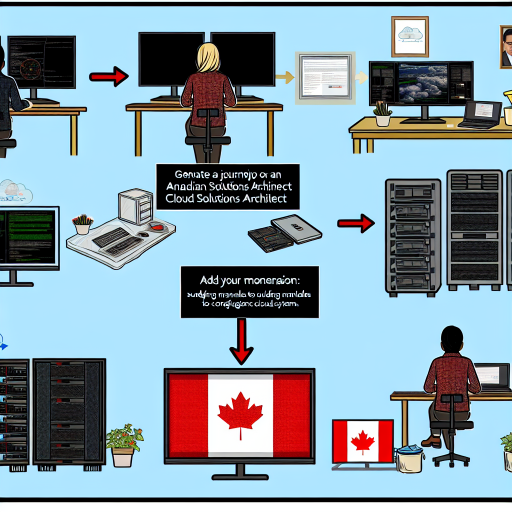Understanding ERP Systems: Key Concepts and Components
Definition of ERP Systems
ERP stands for Enterprise Resource Planning.
These systems integrate core business processes into a single framework.
This helps organizations streamline operations and improve efficiency.
Core Components of ERP Systems
ERP systems typically include several key components.
- Financial Management
- Human Resources Management
- Supply Chain Management
- Customer Relationship Management
Each component serves a specific purpose within the organization.
Benefits of Using ERP Systems
Implementing an ERP system offers significant advantages.
It enhances data accuracy across departments.
Additionally, it provides real-time insights for decision-making.
Moreover, it automates routine tasks, saving valuable time.
Key Features to Look for in ERP Systems
When choosing an ERP system, focus on specific features.
- Customization options
- User-friendly interface
- Integration capabilities
- Scalability
These features ensure the system meets your business needs.
Challenges in ERP Implementation
Implementing an ERP system can be challenging.
Common hurdles include resistance to change from staff.
Furthermore, inadequate training can hinder effectiveness.
Finally, high costs may limit accessibility for some businesses.
Future Trends in ERP Systems
The ERP landscape is continually evolving.
Cloud-based ERP solutions are increasingly popular.
Additionally, artificial intelligence is enhancing system capabilities.
These trends indicate a shift towards more flexible and intelligent systems.
Identifying Your Niche
Selecting the Right ERP Solution
Choosing the right ERP solution is crucial for effective specialization.
Different industries have varying needs and preferences for ERP systems.
For instance, manufacturing firms often require strong production planning tools.
Conversely, retail businesses prioritize inventory management features.
Researching market trends can help identify which solutions are in demand.
Consider focusing on popular ERP systems, such as SAP, Oracle, or Microsoft Dynamics.
Unlock Your Career Potential
Visualize a clear path to success with our tailored Career Consulting service. Personalized insights in just 1-3 days.
Get StartedAdditionally, explore niche solutions that cater to specific industries.
Building expertise in these systems can enhance your marketability.
Understanding Industry Needs
Every industry has unique challenges that ERP systems address.
For example, healthcare organizations often prioritize patient data management.
On the other hand, logistics companies require robust supply chain solutions.
Connecting with professionals in targeted industries can provide invaluable insights.
Attend industry conferences and webinars to expand your knowledge.
Networking with peers can offer firsthand accounts of challenges they face.
Use insights gathered to tailor your skills to meet these needs.
Aligning Skills and Certifications
Your skills should align with your chosen ERP niche.
Consider obtaining certifications for the ERP systems you wish to specialize in.
Certifications demonstrate your commitment and expertise to potential employers.
Many ERP vendors offer certification programs to enhance your credentials.
Moreover, maintaining relevant skills in project management and data analysis is beneficial.
Join online courses to improve your expertise in specific modules within ERP solutions.
Consistent learning can significantly boost your employability in the ERP market.
Evaluating Career Growth Opportunities
Assess potential career growth when selecting your ERP niche.
Look at job postings to gauge demand for specific ERP skills.
Consider the stability and growth potential of industries in your niche.
Some sectors may require ongoing ERP enhancements, creating lasting job opportunities.
Companies continuously seek professionals who can adapt to evolving technologies.
Thus, choosing a niche with growth potential can enhance your career longevity.
Ultimately, aligning your skills with market needs leads to greater success.
Building a Strong Resume
Highlighting Relevant Skills
ERP consultants must emphasize their technical skills in their resumes.
Focus on areas like system configuration and integration expertise.
Highlight proficiency in popular ERP systems like SAP and Oracle.
Moreover, showcase your understanding of business processes.
Employers value problem-solving and analytical abilities.
Include examples of past projects to illustrate your skills.
Certifications to Strengthen Your Profile
Certifications enhance your marketability in the ERP field.
Consider obtaining certifications from recognized institutions.
Certifications like SAP Certified Application Associate are advantageous.
Additionally, Microsoft Dynamics certifications add value to your application.
Ensure to list certifications prominently on your resume.
Quantifying Achievements
Use numbers to describe your achievements effectively.
For example, mention project budgets or team sizes.
State the percentage of efficiency improvements you achieved.
Quantifying your contributions adds credibility to your claims.
Furthermore, it provides tangible proof of your impact.
Tailoring Your Resume
Customize your resume for each job application.
Study the job description thoroughly before applying.
Incorporate keywords from the job listing into your resume.
This technique ensures your resume passes through applicant tracking systems.
Furthermore, it demonstrates you are a good fit for the position.
Learn More: Cloud Solutions Architect Salary Expectations in Canada
Networking Strategies: Leveraging Professional Connections in the ERP Space
The Importance of Networking
Networking plays a crucial role in the ERP sector.
It helps you build relationships with industry professionals.
Moreover, these connections can lead to job opportunities.
Networking also allows you to gain insights into the latest trends.
Utilizing Social Media Platforms
Social media is an effective tool for networking.
LinkedIn is particularly useful for ERP consultants.
Create a complete and professional profile.
Connect with peers, firms, and industry leaders.
Share relevant content to showcase your expertise.
Attending Industry Events
Industry events offer great networking opportunities.
Attend conferences, webinars, and workshops related to ERP.
These events allow you to meet potential employers.
Moreover, you can learn from experienced consultants.
Engage in discussions and ask questions during sessions.
Joining Professional Organizations
Consider joining professional ERP organizations.
Membership can provide valuable resources and connections.
Organizations may offer networking events and forums.
Participating actively can enhance your visibility.
Moreover, you can find mentors in these organizations.
Leveraging Alumni Networks
Your university or college alumni network can be a goldmine.
Reach out to alumni working in ERP firms.
They can provide advice and possibly job leads.
Attend alumni events to meet fellow graduates.
Maintain relationships with alumni for future opportunities.
Engaging with Online Communities
Online forums and communities can enhance your networking.
Participate in discussions on platforms like Reddit or specialized forums.
Share knowledge and ask questions related to ERP.
Building a reputation online can attract job offers.
Additionally, you can learn from others’ experiences.
See Related Content: Future Trends for Cloud Solutions Architects in Canada
Preparing for Interviews: Common Questions and Best Practices for ERP Roles
Understanding the Interview Process
The interview process for ERP consultants often starts with a phone screening.
This initial call may involve discussing your resume and motivations.
Successful candidates will often progress to a technical interview.
Technical interviews typically include scenario-based questions.
Finally, candidates may face an interview with senior management.
Commonly Asked Questions
Prepare for questions about your experience with ERP systems.
Interviewers often ask about specific software you have used.
Be ready to explain your problem-solving approach in technical contexts.
Expect questions regarding your project management capabilities.
Lastly, be prepared to discuss your teamwork and communication skills.
Best Practices for Answering Questions
Use the STAR method to structure your responses effectively.
This method includes Situation, Task, Action, and Result.
For example, describe a challenging project you managed.
Clearly explain your role and contributions to the outcome.
Stay concise and focus on relevant experiences.
Research Your Prospective Employer
Understand the company’s background and services offered.
Examine their ERP solutions and industry focus.
Know their competitors and recent news about the company.
This information can help tailor your responses during the interview.
Additionally, it shows your genuine interest in the position.
Practice Makes Perfect
Engage in mock interviews with a friend or mentor.
Utilize online platforms to practice common interview questions.
Record and review your responses to assess improvements.
Mock interviews can enhance your confidence and clarity.
Finally, ensure you are familiar with ERP terminology and concepts.
Dressing for Success
Your appearance plays a critical role in first impressions.
Select professional attire that aligns with the company culture.
In general, err on the side of formality.
Ensure your clothes are clean, pressed, and fit well.
Moreover, maintain good personal grooming to convey professionalism.
Post-Interview Etiquette
Always send a thank-you email after your interview.
Express your gratitude for the opportunity to interview.
Reiterate your interest in the position and organization.
Furthermore, highlight a key point discussed during the interview.
This follow-up can keep you top-of-mind with your interviewers.
Find Out More: Top Industries Hiring Cloud Solutions Architects in Canada

Continuous Learning: Importance of Staying Updated with ERP Trends and Technologies
Adapting to Rapid Changes
The ERP landscape continuously evolves with new technologies and methodologies.
To remain competitive, consultants must adapt quickly to these changes.
Moreover, flexibility enhances your relevance in the job market.
Investing in Professional Development
ERP consultants should invest in their professional development regularly.
Attending workshops and seminars provides insights into the latest trends.
Online courses from reputable platforms enhance your skill set further.
Certifications can also boost your employability and credibility.
Networking with Industry Peers
Building a strong professional network is crucial in the ERP field.
Networking opens doors to mentorship opportunities and job leads.
Engaging in industry forums keeps you informed about new developments.
Additionally, connecting with experienced consultants can provide valuable advice.
Understanding Emerging Technologies
Consultants must familiarize themselves with emerging technologies.
Technologies such as AI and machine learning are increasingly integrated into ERP systems.
Understanding these trends allows you to offer innovative solutions.
Staying Informed on Industry Trends
Subscribe to industry newsletters and publications to stay updated.
Following thought leaders on social media is also beneficial.
Regularly reading whitepapers helps you grasp future directions in ERP.
Utilizing ERP Community Resources
Participating in online ERP communities fosters continuous learning.
Forums, blogs, and webinars are excellent resources for practical knowledge.
Sharing insights and asking questions can deepen your understanding.
Making Continuous Learning a Habit
Finally, incorporate continuous learning into your daily routine.
Set aside time each week to focus on new skills or knowledge areas.
This commitment to learning will lead to long-term career growth.
See Related Content: Understanding Data Migration as an ERP Consultant
Showcasing Your Experience: Effective Ways to Present Projects and Case Studies
Understand Your Audience
Knowing your audience helps tailor your presentation effectively.
Analyze what employers look for in candidates.
Highlight the skills and experiences that matter most to them.
Structure Your Presentation Clearly
A well-structured presentation creates a lasting impression.
Start with an engaging introduction to capture interest.
Then, present your projects in a logical order.
Finally, conclude with the impact of your work.
Utilize Visual Aids
Visual aids enhance understanding and retention of information.
Use slides, charts, and graphs to illustrate your points.
Make sure they are clear and relevant to your narrative.
Highlight Key Achievements
Focus on measurable outcomes related to your projects.
Discuss specific problems you solved during implementations.
Quantify your success with data whenever possible.
Use Relevant Case Studies
Choosing the right case studies showcases your expertise.
Select projects that align closely with the role you seek.
Explain the challenges, processes, and results of these case studies.
Relate them back to the skills required for the new position.
Communicate Soft Skills
Technical skills are important, but soft skills matter too.
Demonstrate communication, teamwork, and leadership abilities.
Employers value candidates who can collaborate effectively.
Practice and Prepare
Practice your presentation to boost your confidence.
Enlist peers for constructive feedback beforehand.
Refine your delivery based on their input.
Seek Feedback for Improvement
After presentations, ask for feedback from employers.
This helps you identify areas for improvement.
Use this feedback to enhance future presentations.
Exploring Job Platforms
Overview of Job Platforms for ERP Consultants
Several job platforms cater specifically to ERP consultants.
These platforms help streamline the job search process.
Job seekers can find numerous opportunities in the ERP sector.
Additionally, using the right platform increases chances of finding suitable roles.
Top Job Websites for ERP Consultants
Numerous websites support the job search for ERP consultants.
Each offers unique features to aid in finding the right position.
- LinkedIn: This platform connects professionals directly.
- Indeed: It provides a comprehensive job search experience.
- Glassdoor: This site helps understand company culture and salaries.
- SimplyHired: It aggregates job listings from various sources.
- Monster: This platform offers career advice and job listings.
Specialized Job Boards for ERP Professionals
Some specialized job boards focus solely on ERP-related positions.
These boards are great resources for niche job postings.
- ERP Jobs: This site offers a variety of ERP positions.
- My ERP Job: It specializes in jobs across different ERP platforms.
- Workday Community Job Board: This connects Workday professionals to opportunities.
Networking and Social Media
Networking plays a crucial role in finding job opportunities.
Social media platforms can enhance your networking efforts.
Joining LinkedIn groups focused on ERP can be beneficial.
Additionally, attending virtual events expands your network.
Using Job Alerts and Notifications
Set up job alerts on your chosen platforms for new listings.
This proactive approach keeps you informed of fresh opportunities.
Customize alerts based on location and job title.
Moreover, timely applications can make a significant difference.




